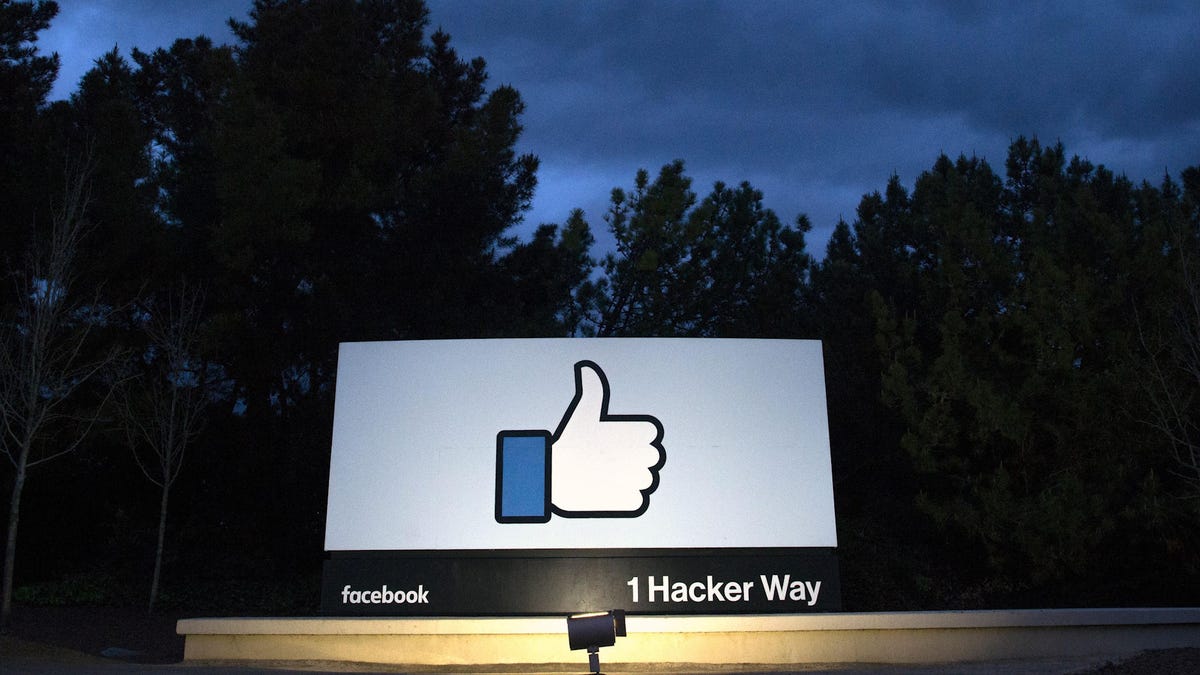Social Science One group will study Facebook's effect on elections
But after its recent data scandal, Facebook will have to prove it can safeguard the user info it shares with researchers.

Facebook is partnering with an independent organization called Social Science One to study the effects of social media on elections.
In April, Facebook announced it would work with a new independent research commission to study the effects of social media on democracy and elections.
Now that group has a name. It will be called Social Science One, and its goal is to use Facebook's rich troves of data to pursue academic projects that are "socially beneficial," the group said on Wednesday.
Social Science One's inaugural project is to partner with Facebook to examine democracy and elections, but it will also study other topics and receive data from companies in other industries. The group will put out requests for proposals, and outside academics will be able to apply for access to the Facebook data to use in approved projects.
The first request for proposals is for projects studying misinformation and fake news. Facebook will provide a petabyte -- or 1 million gigabytes -- of data to researchers, including public URLs Facebook users have clicked on, when people clicked on them, and what types of people did the clicking. Facebook said it won't have the right to see or approve any of Social Science One's reports before publication.
Social Science One will be co-chaired by Gary King, a Harvard professor and director of the Institute for Quantitative Social Science, and Nathaniel Persily, a Stanford law professor and co-director of the project on Democracy and the Internet.
It's not surprising that the group's first topic of study would be the effects of social media on elections. Facebook has been in the hot seat with lawmakers and the public for its role in the 2016 US presidential vote. Russian trolls abused the platform to post misinformation and divisive content in an attempt to meddle in the election and sow discord among voters.
The fact that Facebook is taking part in another initiative that gives outside researchers access to its data may give some critics pause, especially after its March scandal involving Cambridge Analytica. The UK-based consultancy, which had ties to the Trump presidential campaign, improperly accessed personal information on up to 87 million of the social network's users.
Facebook said the trail led back to a researcher from Cambridge University named Aleksandr Kogan, who obtained the data legitimately from people who downloaded a third-party quiz app he developed. But Facebook said its policies were violated when the data was sold to Cambridge Analytica.
The controversy eventually led Facebook CEO Mark Zuckerberg to Capitol Hill, to face a grilling from Congress over everything from data misuse to election meddling.
So the big question for Facebook as it works with Social Science One will be how it endeavors to protect user privacy and prevent abuse. Social Science One said outside researchers will have to pass a "rigorous peer review process" and special "ethical review," conducted by the Social Science Research Council, an independent group led by Alondra Nelson, a sociology professor at Columbia University.
"No raw data will be shared with any researcher," King said on a conference call with the press on Wednesday. "It will be impossible for them to re-identify someone, but still identify broad patterns."
He added: "Scholars legally agree to follow the rules and the rest of the community hopes they comply, to one of collective responsibility, where multiple people are always checking and the risk of improper actions by any one individual is greatly limited."
Social Science One also addresses the concern on its website.
"Facebook and our funding partners recognize the threat presented by the misuse of Facebook data, including by an academic associated with Cambridge Analytica," the website says. "That is why the data made available for research by Social Science One is first reviewed and cleared by our commission members, external privacy experts, and Facebook's privacy and research review teams."
The research will be funded by a group of charitable foundations, including the Laura and John Arnold Foundation, the William and Flora Hewlett Foundation, the John S. and James L. Knight Foundation, the Charles Koch Foundation, and the Omidyar Network's Tech and Society Solutions Lab. Facebook won't provide funding for any of the research.
For now, the first data set Social Science One is making available is on fake news, but the group will release other data sets from CrowdTangle, a Facebook-owned service for monitoring social platforms. Other data sets will be focused on elections in other countries, like Mexico and Canada.
The Smartest Stuff: Innovators are thinking up new ways to make you, and the things around you, smarter.
Special Reports: CNET's in-depth features in one place.
First published July 11, 8:30 a.m. PT.
Update, 10:04 a.m. PT: Adds information from Social Science One's press conference call.

